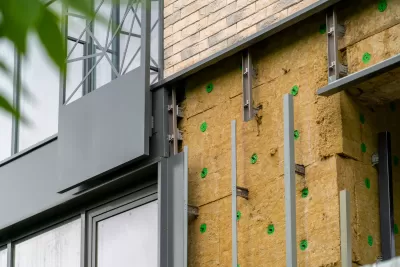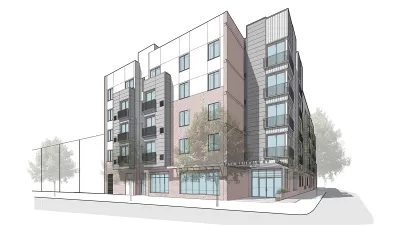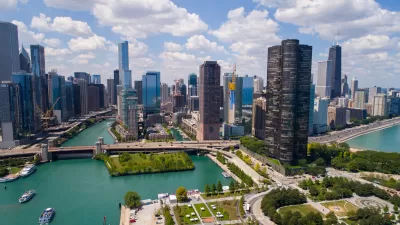Developers in Chicago and around the country are taking notice of a design standard that encourages energy efficiency and sustainable materials.

Multi-family housing developers in Chicago are embracing Passive House design standards to lower their carbon footprints and reduce costs. As Lizzie Kane reports in the Chicago Tribune, “Multifamily developers, particularly those building affordable housing, in Chicago have begun to embrace Passive House design in the last few years thanks to local industry professionals advocating for changes in the city and state building energy codes, as well as buy-in from ComEd, the primary energy provider in the state.”
“Passive House design focuses on making a building tightly sealed by including features such as triple-paned windows and wraparound insulation to keep outside temperatures from creeping in (and noise too), as well as ventilation systems to keep air quality fresh,” Kane explains.
The Passive House standard, originally geared toward single-family homes, is being implemented on around 275 multi-family projects nationwide, according to a study from the Passive House Network. “The study said in order to speed up the pace of Passive House development, local, state and federal policymakers should finance incentive programs, offer professional training, increase provisions in state affordable housing programs and amend compliance rules in energy codes.” Passive House was recently added to Chicago’s Sustainable Development Policy and the city’s building code.
Kane describes other city and state policies in the works that will incentivize the Passive House standard and make it easier to build low-impact, efficient buildings at lower cost. Outside of Illinois, “Massachusetts, New York, Pennsylvania and Connecticut lead the way in multifamily buildings being developed to meet the Passive House standard, with each state having more than 50 properties in the pipeline or already completed, according to Phius’ database.”
FULL STORY: Passive House design is coming to Chicago’s multifamily housing industry

Maui's Vacation Rental Debate Turns Ugly
Verbal attacks, misinformation campaigns and fistfights plague a high-stakes debate to convert thousands of vacation rentals into long-term housing.

Planetizen Federal Action Tracker
A weekly monitor of how Trump’s orders and actions are impacting planners and planning in America.

In Urban Planning, AI Prompting Could be the New Design Thinking
Creativity has long been key to great urban design. What if we see AI as our new creative partner?

San Francisco Mayor Backtracks on Homelessness Goal
Mayor Dan Lurie ran on a promise to build 1,500 additional shelter beds in the city, complete with supportive services. Now, his office says they are “shifting strategy” to focus on prevention and mental health treatment.

How Trump's HUD Budget Proposal Would Harm Homelessness Response
Experts say the change to the HUD budget would make it more difficult to identify people who are homeless and connect them with services, and to prevent homelessness.

The Vast Potential of the Right-of-Way
One writer argues that the space between two building faces is the most important element of the built environment.
Urban Design for Planners 1: Software Tools
This six-course series explores essential urban design concepts using open source software and equips planners with the tools they need to participate fully in the urban design process.
Planning for Universal Design
Learn the tools for implementing Universal Design in planning regulations.
Gallatin County Department of Planning & Community Development
Heyer Gruel & Associates PA
JM Goldson LLC
Mpact (founded as Rail~Volution)
City of Camden Redevelopment Agency
City of Astoria
Jefferson Parish Government
Camden Redevelopment Agency
City of Claremont





























